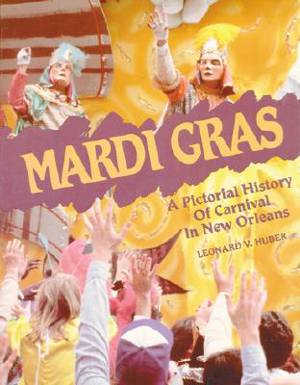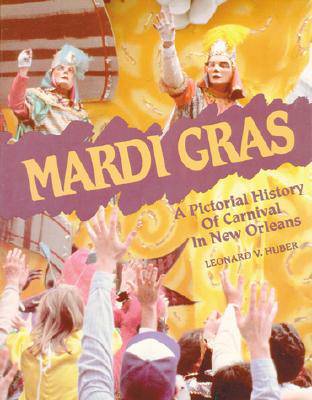
- Retrait gratuit dans votre magasin Club
- 7.000.000 titres dans notre catalogue
- Payer en toute sécurité
- Toujours un magasin près de chez vous
- Retrait gratuit dans votre magasin Club
- 7.000.000 titres dans notre catalogue
- Payer en toute sécurité
- Toujours un magasin près de chez vous
Description
In this pictorial study, the author recounts the history of Carnival in New Orleans, bringing to life in photographs and in text the color, the pulse, and the pageantry that have earned for this annual extravaganza the distinction as "the greatest free show on earth!" Author Leonard Huber traces the evolution of carnival from its modest beginnings, including: Lavish balls during the American regime under Governor William C.C. Claiborne; The first masked parade in 1837; The first torchlight parade by the Mystick Krewe of Comus in 1857; The coming of Rex and Momus in 1872; Participation of royalty, including Alexis, Grand Duke of Russia, and the Duke and Duchess of Windsor; The fiercely anti-Republican themes during the bitter years of Reconstruction; Modern innovations and the establishment of new krewes; Creation of the Rex doubloon in 1960. More than 160 photographs and drawings, many of them old and rare, illustrate the fast-moving narrative. One of Louisiana's leading historians, author Leonard Huber was a lifetime observer of Carnival and Mardi Gras. Many of the photographs and memorabilia reproduced in this volume are from his extensive private collection. He also wrote New Orleans: A Pictorial History, published by Pelican.
Spécifications
Parties prenantes
- Auteur(s) :
- Editeur:
Contenu
- Nombre de pages :
- 96
- Langue:
- Anglais
Caractéristiques
- EAN:
- 9780882891606
- Date de parution :
- 31-01-76
- Format:
- Livre broché
- Format numérique:
- Trade paperback (VS)
- Dimensions :
- 215 mm x 278 mm
- Poids :
- 290 g







